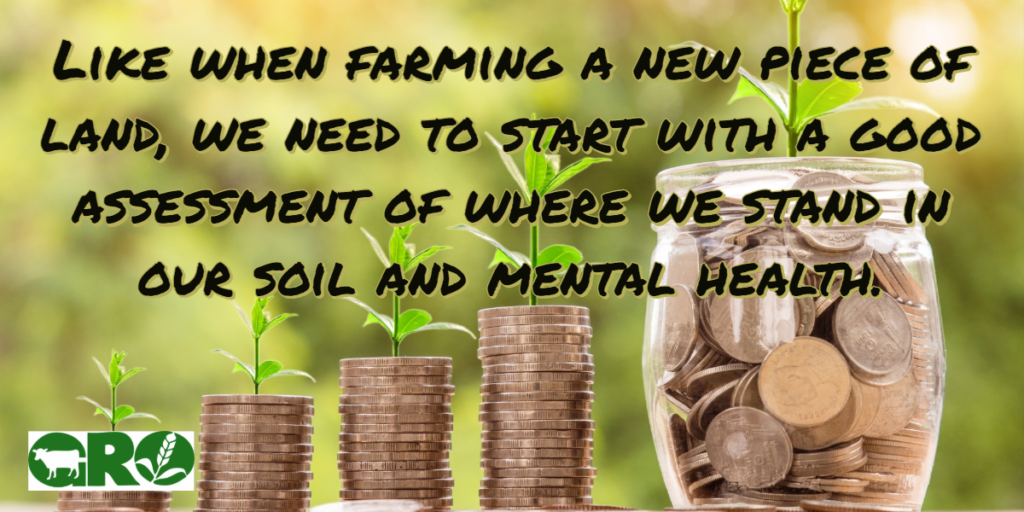The leaves on the trees have begun to grace us with all of the beautiful colours of fall. The abundant rains of this summer seem to have subsided long enough for the ground to dry up, allowing farmers to get started on harvesting the crops that they spent the spring planting. Many of us have young children that have started back at school. It seems like as the hours of daylight shorten, our to-do lists seem to lengthen. Because of these lengthening to-do lists we can often feel overwhelmed with the need to get everything done in short order and to get it done well. It is so easy to get caught up in the just trying to keep up mentality of life in this season. In this we often forget that there is more to life than being busy and that our mental health can pay the heavy toll. When you meet an old friend in the grocery store or coffee shop and they ask “how have you been?” do you typically reply with “busy”? And how does busy make you feel?
We all know that there are seasons of busyness that are unavoidable, especially on the farm, and harvest season is one of those. Much like we plan though for harvest throughout the winter, as we lay out our plans for our next season’s crops, talk to salesmen to purchase needed seed and do repairs and maintenance on equipment, is it not just as important to plan for our mental health before these busy seasons ensue? Would it be possible to plan for these seasons in advance and make sure that we are maintaining good emotional and mental health?
When preparing the plans for our growing season, we typically start with a basic understanding of our industry. We ask ourselves what we are wanting to grow and what will it need to flourish. All of our plans, any purchases that we make stem from this basic foundational knowledge. So what is the foundation needed for good mental health? As with caring for our soil, it is all about balance. The foundational aspects to mental health are social, physical, mental, economic, spiritual and emotional. Now there are times that each of these aspects are beyond our realm of control, but when we have a good balance, we are able to fix the problem while maintaining production. When there is a nitrogen deficiency in our soils, this is a sign that we need to fix a problem. That we may have to change our management styles in order to give the soil what it needs. If we don’t address the nitrogen deficiency when it is still in its early stages and if we continue doing the same things that we have always done, we will end up with poor crops and a whole host of other problems including weed issues and compaction in our soils. This is a mirror image of what happens to our mental health when we fail to address the signs of potential problems. Like when farming a new piece of land, we need to start with a good assessment of where we stand in our soil and mental health. From there we need to decide what we should start planting, what management practices need to come in to play in order to become regenerative. And we need to start long term planning, speaking to experts if necessary to figure out what our next steps are in growth. Maybe we need to start putting up some fences (boundaries) and taking down others. We do everything that we need to in order to make our vision of our land become a future reality.
Creating the foundation for good mental health may seem like just another thing to add to your to-do list, but it can be instrumental in having a regenerative heart and mindset. At GRO we think that this is just as important as having high yielding crops and terrific soils, so we are in the midst of planning a mental health workshop in Lac Ste. Anne County in the beginning of December. Keep an eye on our events calendar for more information!
Amber Kenyon
Gateway Research Organization

